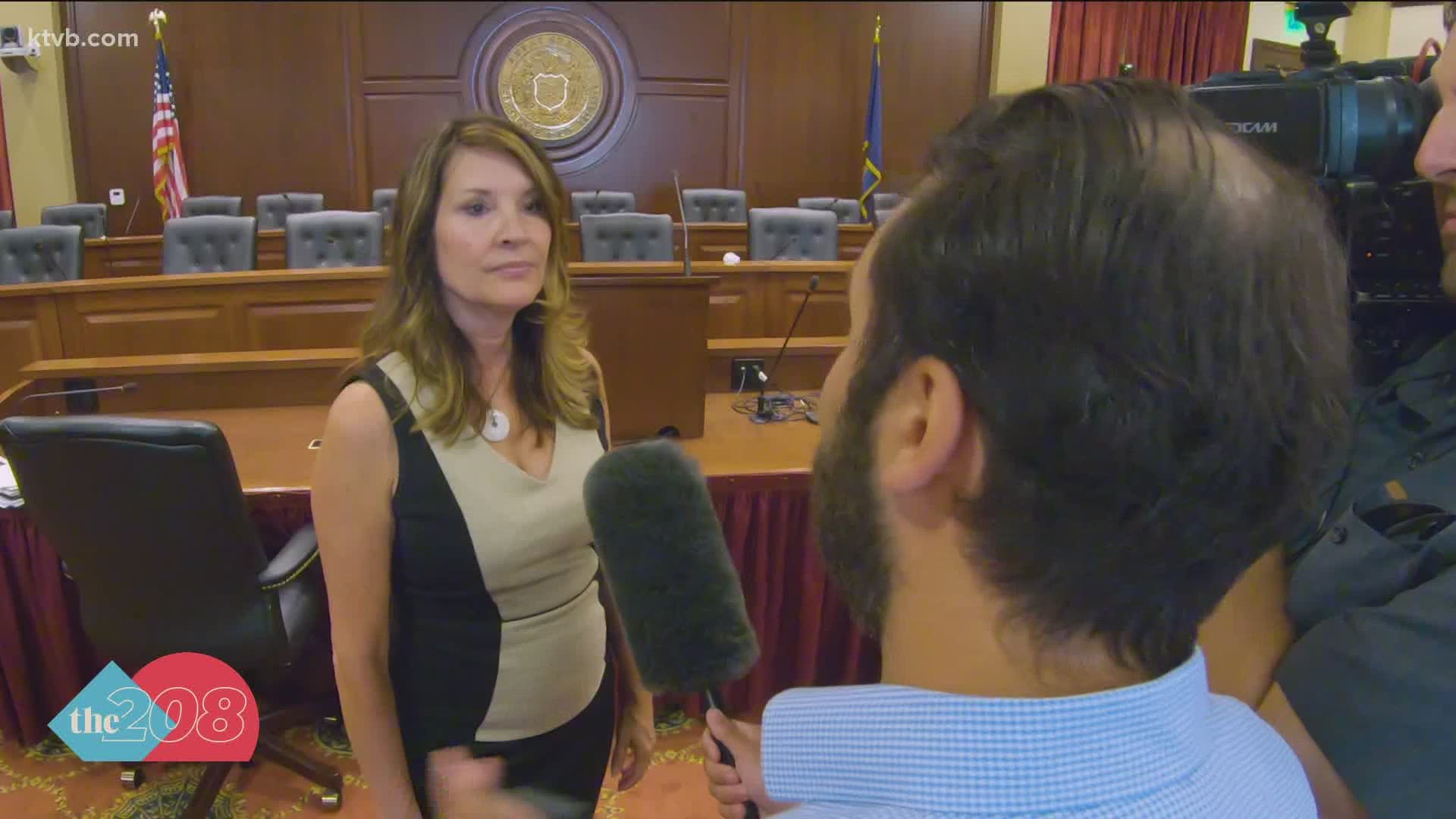BOISE, Idaho — On Thursday morning, Idaho Lt. Governor Janice McGeachin held a press conference to address concerns some have with a recent decision from select medical employers. Last week, St. Luke's Health System, the owner of Saint Alphonsus Health System and Primary Health Medical Group all announced that the COVID-19 vaccine will soon be required for all staff.
Critics of the announcement said the decision goes too far, and that it is a major overreach to make employees choose between getting a vaccine they don’t want and termination. Idaho medical providers explained that they are requiring vaccines to protect their patients and employees.
During the press conference on Thursday, McGeachin called on Idaho employers to reconsider any decisions to require a vaccine to maintain employment.
Following the press conference, KTVB’s Joe Parris spoke with McGeachin about her stance on the issue. Below is a transcript from a portion of the interview.
Editor's Note: The following interview has been edited for grammar and clarity.
Joe Parris: Critics of yours have said that this is an example of you trying to reach into private business and they say the government's going to reach in and regulate, is that fair? Do you think this is something that you're trying to reach into private businesses and tell them how to do their job, or is that a mischaracterization?
Lt. Gov. Janice McGeachin: That's a mischaracterization because I'm a business owner myself I'm an employer, and I do not like the government telling me what I may or may not do to run my company. That's why I tried to draw the distinction between what I view as being a mandate on a business by government and what I view as respecting the individual, the choice and the autonomy of people, and what kind of medical decisions they choose to place on themselves as an employer, that is none of my business.
Parris: Do you think the word mandate is appropriate when, in the sense of no one's being forced to take a vaccine but some people are being put in a position where they have to make a tough decision, get the vaccine or lose their job. It's, again, not a mandate, but do you think the word mandates may be overused here?
McGeachin: I view that as a mandate because if they are not going to comply with getting the vaccination, they will be fired.
Parris: I know some of your supporters have said, it's my body, It's my choice. Do you agree with that?
McGeachin: Absolutely.
Parris: Does that extend to other medical discussions?
McGeachin: As an employer, absolutely. Now I am also an individual and I have my own views on things like abortion and other things. But as an employer, it is not my job to interfere with those personal decisions of my employees.
Parris: Do you think this is a situation of a vocal minority being here today and speaking out, or from what you've seen is it more than just a vocal minority as it's been described?
McGeachin: I believe it's more than just a vocal minority. This is growing across the state, it's growing across the nation. And so I would just advise my colleagues in the legislature and other elected officials to heed the call.
Parris: Do you have concerns about the vaccine rates in Idaho, would you like to see them be higher?
McGeachin: Well, I'm, again, leaving those decisions up to the individual, we've done everything we can to help educate people. And I encourage people if you want a vaccination, then get one, and I know that the vaccine has been a good thing for a lot of people it's given people the confidence to be able to go back out into the community, and I encourage that, but there also has to be a reason why, still, a majority of our population has not had it, it might be like myself, that I believe I already have the natural immunity which is stronger than the vaccination so there's probably a lot of that, that's out there as well. We need to respect that.
Parris: A lot of the commentary around some of your comments is that you would support government overreach or government telling private businesses what to do. Explain the difference between what you're doing here today in terms of, I guess, advocating and what is government overreach would actually be
McGeachin: Well, I think we just have a difference of opinion of what a good, I don't view respecting the individual right of a person to make their own health care decision and I don't view that as being in conflict with, or a government entity, respecting that I don't view that as being a mandate.
Join 'The 208' conversation:
- Text us at (208) 321-5614
- E-mail us at the208@ktvb.com
- Join our The 208 Facebook group: https://www.facebook.com/groups/the208KTVB/
- Follow us on Twitter: @the208KTVB or tweet #the208 and #SoIdaho
- Follow us on Instagram: @the208KTVB
- Bookmark our landing page: /the-208
- And we also turn each episode into a podcast on Podbean
- Still reading this list? We're on YouTube, too:

